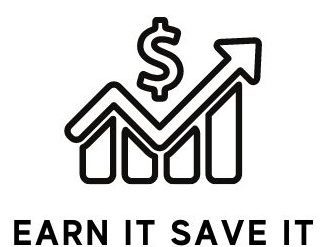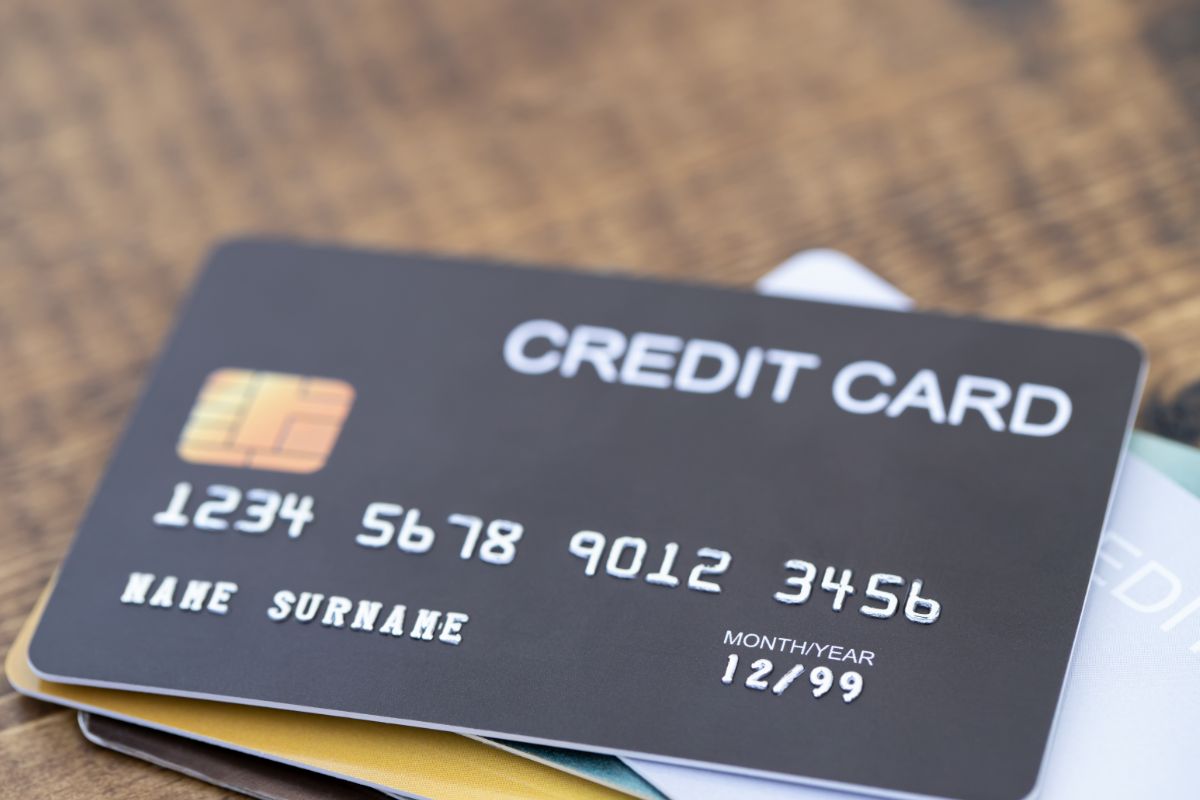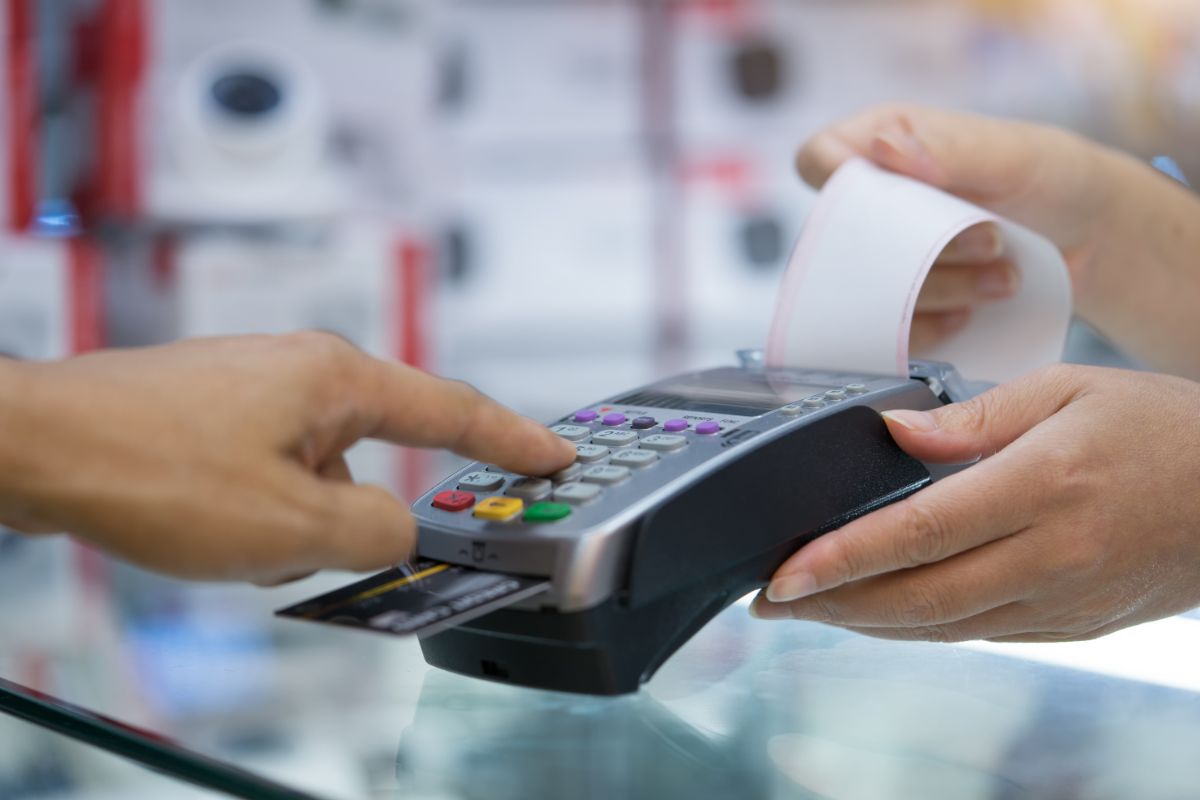Credit cards can come with all manner of rules, regulations, and hidden fees that can prove shocking (and sometimes devastating) for those who don’t have the proper know-how. One of the biggest concerns you might be having during this season of high inflation is: does credit card interest go up when interest rates rise?
When the Federal Reserve increases interest rates, you can expect all interest rates on credit including home loans, credit cards, and student loans to increase as well. It is incredibly important – both to your financial security, and your own mental well-being–to stay on top of these increases to preserve your financial sanity.
Table of Contents
Credit Cards and Rising Interest Rates
The short answer is, yes, rising interest rates can indeed increase the interest you will pay on credit cards., that is, unless you have a fixed transfer rate or special offer for transferring a balance.
What is Credit Card Interest?
The best way to think of credit card interest is as the money you pay for the privilege of borrowing money from the credit card company.
The rate at which you have to pay it back is usually agreed when taking on the credit card, and the amount you have to pay each month generally depends on the size of the credit card debt you have, and how much you have paid back within that period.
How is Interest Calculated?
While credit card interest is usually presented via yearly rates that reflect interest levels, credit card companies calculate the interest you should pay based on a daily rate that is based on your account balance.
There are two types of credit card interest: Variable rate, or fixed rate, also called a promotional rate or offer.
Can Interest be Avoided?
Credit card interest can be avoided by paying off your outstanding credit card debt in full each month when the balance is due. Credit card interest can also be avoided by transferring your balance to a zero-interest promotional credit card rate then paying off the balance on or before the special rate expires.
However, this is usually not an immediate option for most people, who more than likely took out a credit card to expand their available income.
If you do not pay back the credit within the specific month, then the interest you owe will be carried over based on the balance at the end of the month.
How Likely are Federal Interest Rate Hikes?
Unfortunately for some credit card users, the Federal Reserve has already established plans to raise the interest rates, meaning that those with substantial credit card debt will certainly feel the sting of this increase.
This proposed rise in interest will mean that the process of an individual using a credit card will be an overly expensive process, and will mean that for some, it just might not be a viable option for them long term. Most credit cards include 17-26% interest, so watch out. This amount of interest is up there with payday loans and loan sharks. It would be wise to begin paying off your debt, talk to a credit agency, or avoid credit cards totally.
You can also check out these credit cards side-by-side to see which ones have the best offer. If you carry a balance, it can make sense to open a new credit card account up and transfer your balance to get the promotional offer of 15 months at 0% interest that are offered to most new customers.
Why Does Raised Interest Affect Customers?
When the Federal Reserve raises the interest rates, the banks and credit card companies respond in kind as a means of keeping their own costs low, and their profits secure.
This might sound like a complex issue – and in essence, it is – however, there are reasons behind why a Federal Reserve interest hike could affect the interest you will pay on credit card debt.
Competitively (At First)
While credit card companies are ready and raring to go – at least when it comes to raising payment rates and earning more money for themselves – they are ultimately governed by the nature of the market, and the choices of their competitors.
In essence, this is the only thing keeping them ‘honest’ – as, if one bank quickly hiked interest rates as soon as they were legally able to, then customers would simply flock to their competitors at their earliest convenience.
It means that, to stay in the game and remain profitable, they need to keep a close eye on their competitors – each of them increasing incrementally in the hopes that customers do not become spooked, and they don’t topple the entire market.
Opening of Floodgates
Once all banks have raised their interest rates on credit cards – within the new regions set by the Federal Reserve – then in essence the gloves are off, and many will up their prices to get as much money as possible.
This is because under such dire circumstances, customers have very little choice or incentive to change their banks, as most will be comparable in terms of the prices they charge users for credit cards.
How to Combat Debt Fast?
While debt is commonplace and at times difficult to manage, there are some things that can be done to combat the mess you are in – even if that mess seems dire and impossible in the heat of the moment.
Stop Digging, Start Budgeting
Many experts would say that, if you are trying to get out of a financial hole, then the best method is to stop digging.
This means that you need to stop spending on your credit card (if possible).
While you will still be required to pay interest until your debt is cleared, the demand will be substantially higher if your spending outweighs your repayments.
Focus on Bigger Rates
It is also recommended that you focus on the debts with the highest interest rates first, as they can amass the most debt in the shortest amount of time.
If you have multiple credit card debts of different sizes (and with different rates of interest), then focus on the big, dangerous ones first, and save the smaller ones till last.
This could mean making a minimum payment on every other bill, but as long as you are tackling the larger debts, then you are moving in the right direction.
Find Revenue Streams
If you have some free time that you can feasibly give up, then why not take on a part-time job or side hustle to help pay off your credit card debts?
This is not always suitable for everyone’s lifestyles and time commitments, but if you do have some hours in the day – or days on the weekends – then this can be a great way to get a jump start on debt, without eating into your existing funds and savings.
You could also sell your unused items, rent out rooms in your home, or even take on some freelance work, depending on your skills.
Be Frugal
If you feel like you are drowning in debt, then you need to knuckle down, tighten your belt, and focus on what you can live without for the foreseeable future.
Try avoiding bars and eating out in restaurants, cutting back on certain entertainment packages, trimming your subscriptions to online services, and (gasp) cutting out that daily or weekly Starbucks run.
If you find yourself in bad debt, then this should take precedence over luxury activities and products.
Food, water, heating, and electricity are important, but aside from that, your focus should be on making things better.
This can seem difficult in the short term, but once you are free from the depths of a large debt you will soon be glad that you made sacrifices.
Final Thoughts
And there we have it, everything you need to know about credit card interest, and the ways they can be affected by rising interest rates.
It’s true that credit cards can be a minefield, especially with regard to the rules, regulations, and hidden fees involved.
However, with these simple steps, you too can expertly navigate these harsh waters, ensuring you are as secure and prepared as possible.


